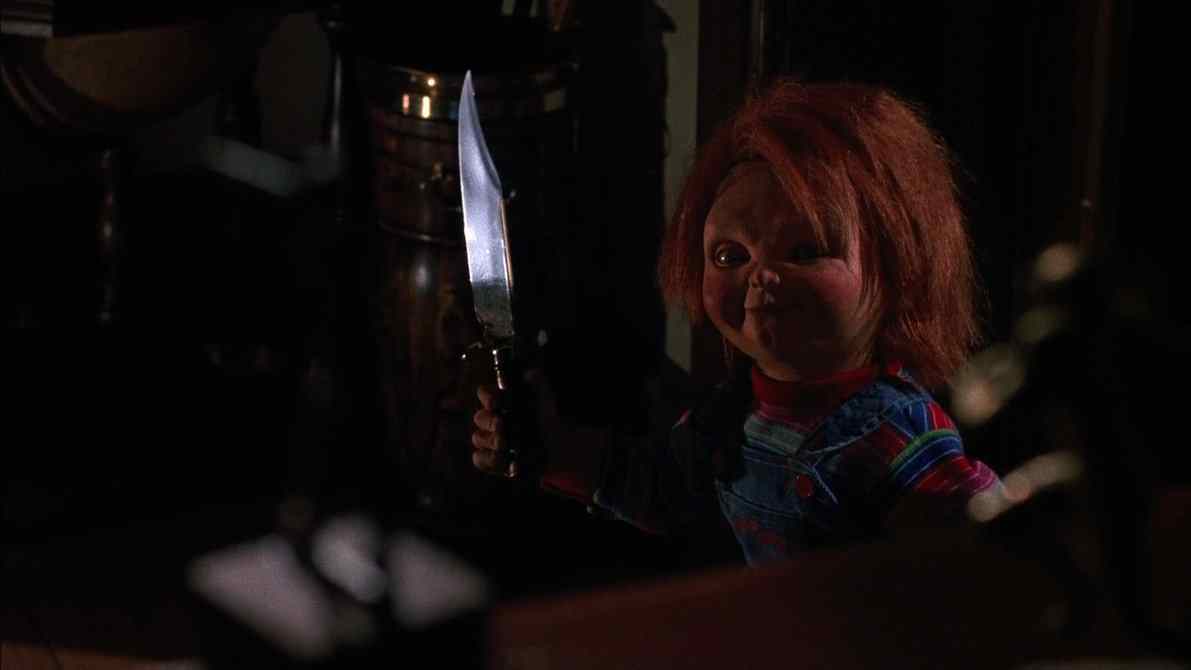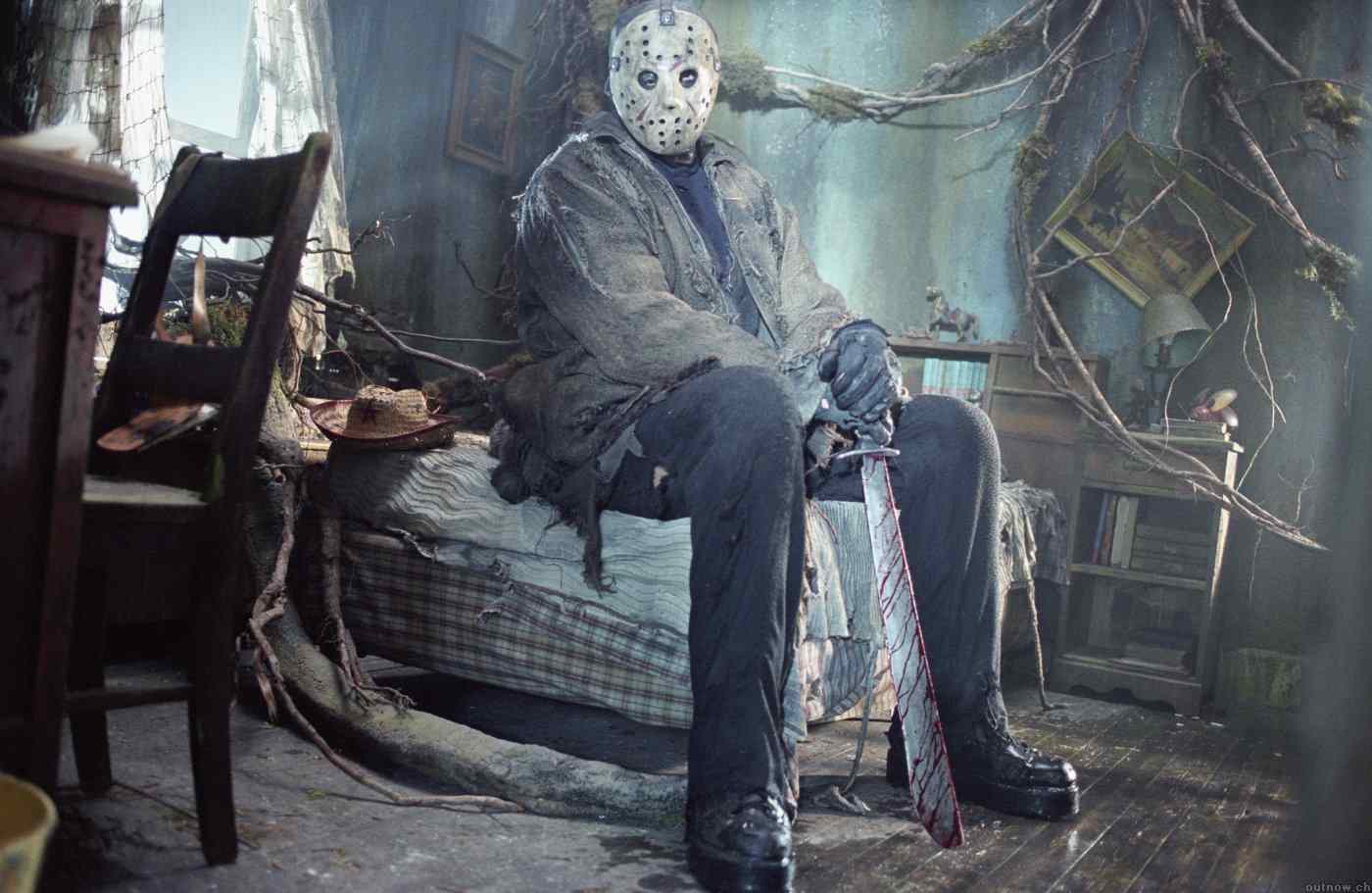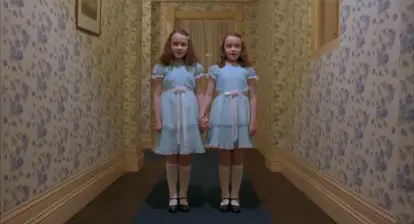I’m writing this primarily as a fan. I have loved the genre as long as I can remember and it means the world to me. This article, which comes from The New Republic, points out all the dangerous components about people who watch horror films. Actually, it bizarrely makes the distinction of targeting people who enjoy watching horror films. Chances are that anyone who is coming to this site loves the genre. I’m not going to go too far into saying why this is a stupid point because I don’t think anyone here is going to be dissuaded in their love of the genre by reading one article. Bizarrely, the primary focus here was on current beloved horror film The Babadook. This is not a movie that even attempts to approach the level of controversy that The Texas Chainsaw Massacre or The Exorcist did. To give more recent examples, it’s no Human Centipede. In fact, it’s probably one of the most harmless films of the year.
But that’s not what’s wrong here. Nobody is thinking about the particular movie they chose when their attack is on the entire genre and everyone that watches it. After the opening paragraph, The Babadook is barely mentioned again. That’s because it’s simply a name pulled out of a hat to get to the real point: The people who watch scary movies are, well, scary. It’s no coincidence that the points made in this article also happen to be the common identifiable traits of serial killers. In fact, the biggest problem might be that it’s not a shock at all to see something like this. I think I can speak for most fans reading this when I say that the biggest problem I had with much of this article was that it was far from the first time I’d heard most of it.
Every fan has, at some point in their life, been ostracized to some degree for their love of the genre. People will look at you funny or at least wonder what’s going on in your head. Horror finds an audience with the masses but it is embraced by the people on the outskirts. It is we, the weirdoes, who truly love it and are passionate about it. Our love of the genre does not make us killers, of course. Instead, it brings us together. We bond over our love of the genre, certain movies or directors or whatever the case may be, and we make friendships for life. That’s what horror does to people.
Horror fans and filmmakers alike are some of the nicest, kindest people on the planet. Yes, there will always be people who try and spoil things. There will always be that one guy at a convention who tells an actor or a director that they should be ashamed for some movie they did, or starts a fight, or creepily tries to hit on an actress. That guy will always be there, no matter where you go. But the best thing about a convention will be watching the fans and filmmakers alike come together to make sure that guy stops doing whatever it is that he is doing. Horror is not a fandom. It’s a community.
It’s been said that part of the reason that people who love the genre so much love it because it allows them to get all of their darkness out on screen, whether it’s in making it or watching it. To some degree, I definitely believe that. Everyone has darkness in them. Everyone has either had something terrible happen to them or felt like doing something terrible at some point in their lives. Probably both. Finding an artistic, creative way to deal with all of that is healthy. Repressing it is not.Ted Bundy, Ed Gein, Jeffrey Dahmer… all of these people came from uptight, conservative Christian backgrounds. They had very harsh restrictions on the things they were allowed to read, watch and do. These are the people that we are compared to almost every day. These people who had no interest in the genre, who clearly hadn’t watched horror movies to take inspiration from, still wound up doing some of the most awful things in human history. Adolph Hitler’s favorite movie was Snow White and the Seven Dwarves, not Nosferatu. Even if it had been, Nosferatu wouldn’t be the thing that made him Hitler.
People always love to talk about how complex and fascinating the human brain is until it does something awful. Then they look for one singular thing to blame for its actions. Child’s Play 3 was pulled from theaters because it was blamed for the murder of a two-year-old infant by two ten-year-old boys. Now, for those unfamiliar Child’s Play 3 is about a killer doll attacking a military school. The only thing these two things have in common is violence and clearly that was enough, because the movie was named as the inspiration for the crime and was banned in the UK. It was later revealed that the boys had not actually seen the film, but the situation would not be any less ridiculous if they had. At the same time, having a strict Christian background is not what drove Ted Bundy to murder. People always look for something to blame, one thing to focus all the anger and confusion toward, because they don’t want to admit that life is scary and people are complicated.
 The area where it becomes harder to be diplomatic—not that I won’t be—is when this article claims that it’s safe to assume most people who watch horror movies are male. This could spark an endless debate, but there’s a very simple solution. Ask women if they watch horror movies, some will say no and some will say yes. In many ways it is that simple. Everyone reading this either knows a woman who watches horror movies, or is one. That’s enough to disprove the theory. What’s actually wrong with this whole point is that it just becomes yet another area in which women aren’t counted at all. To some degree, I’ll admit, that falls on the industry. Not enough things are marketed towards women, not enough things are geared toward them or inclusive, although things certainly seem to be headed in the right direction. That just makes the fact that there are so many female fans all the more impressive. They see the movies even when ads seem to be begging them to stay away. Marketing departments aren’t sexist in any way, they just don’t always know how to handle the female viewership. The content itself will always be dark, and grim and not for everyone. But the term “not for everyone” is not meant to include entire groups of people, particularly half the population. Some of the coolest, most dedicated fans in the world are women, but that should go without saying because logically the genre would have died a long time ago if 50% of the movie going audience refused to watch.
The area where it becomes harder to be diplomatic—not that I won’t be—is when this article claims that it’s safe to assume most people who watch horror movies are male. This could spark an endless debate, but there’s a very simple solution. Ask women if they watch horror movies, some will say no and some will say yes. In many ways it is that simple. Everyone reading this either knows a woman who watches horror movies, or is one. That’s enough to disprove the theory. What’s actually wrong with this whole point is that it just becomes yet another area in which women aren’t counted at all. To some degree, I’ll admit, that falls on the industry. Not enough things are marketed towards women, not enough things are geared toward them or inclusive, although things certainly seem to be headed in the right direction. That just makes the fact that there are so many female fans all the more impressive. They see the movies even when ads seem to be begging them to stay away. Marketing departments aren’t sexist in any way, they just don’t always know how to handle the female viewership. The content itself will always be dark, and grim and not for everyone. But the term “not for everyone” is not meant to include entire groups of people, particularly half the population. Some of the coolest, most dedicated fans in the world are women, but that should go without saying because logically the genre would have died a long time ago if 50% of the movie going audience refused to watch.
Horror is my life. I can say that comfortably because I’m not the only one. Most of you reading this adore the genre the same way I do and I am so grateful just to have a platform on which to wax poetic about Tobe Hooper or write articles on Alien 3 that generate a frighteningly passionate response. I love everything about the genre from the good to—sometimes especially—the bad. It’s the constant underdog. From the early days of the Universal monsters, it’s never been embraced by the mainstream. The general public has never really let up on the genre or stopped believing that it is somehow detrimental to society. Yet I believe in us. I continue to hope that someday people just accept the genre, even if they don’t get it. But that’s not happening anytime soon and, frankly, things like that are what attract people to the genre in the first place. The negative response to the genre feeds into the stories and creativity and creates a cycle. But that doesn’t mean that the people who love this stuff aren’t sick of hearing it.
Horror fans are not sociopaths and are certainly not all men. We are no more or less than people with the capabilities that any other person may have. We just love horror. Some people may only love older horror, some people might only love the modern stuff. Some absolutely adore slashers and some can’t stand them. But all of these people are bonded together by their passion. All of these people love it and crave more. The more people tell us we can’t have something, the more we want it. That’s just the way the world works. Articles like this one are, in some ways, part of the reason that sites like this one exist. The internet may not always be great, but it can at its best provide the sense of community that fans used to only be able to get at conventions. You might be the only fan in your home town, but online you’ll find the millions of other people who love Friday the 13th the way you do, and the dozens of fans who love the Puppet Master franchise. Every forum, every article that explores a topic you hold dear is its own support system. No matter how popular it may be, an article telling people that they cannot love the thing they love—whatever it is—will only make them embrace it that much more.








